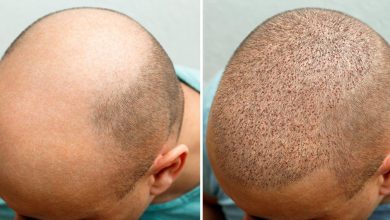Building a Balanced Diet: Key Health and Fitness
Introduction
Maintaining a balanced diet is essential for achieving optimal health and fitness. A well-rounded diet provides the body with the necessary nutrients, vitamins, and minerals to function at its best. In this article, we will explore the importance of a balanced diet, the key components to include in your meals, and how to make healthy food choices. Let’s dive in and discover the path to a healthier and more energetic you!
Understanding the Fundamentals
1. What is a Balanced Diet?
A balanced diet is a nutritional approach that includes a variety of foods from different food groups, providing the body with all the essential nutrients it needs for proper functioning. It involves consuming a mix of carbohydrates, proteins, fats, vitamins, and minerals in the right proportions.
2. The Importance of a Balanced Diet
A balanced diet plays a crucial role in supporting overall health and fitness. It helps maintain a healthy weight, enhances energy levels, improves digestion, boosts the immune system, and reduces the risk of chronic diseases.
3. Assessing Your Current Diet
Before making any changes, it’s important to assess your current eating habits. Identify areas that need improvement and areas where you are doing well. This will help you set realistic and achievable goals for building a balanced diet.
Building Blocks of a Balanced Diet
4. Carbohydrates for Energy
Carbohydrates are the body’s primary source of energy. They are found in foods such as whole grains, fruits, vegetables, and legumes. Opt for complex carbohydrates over simple sugars as they provide sustained energy and essential nutrients.
5. Lean Proteins for Growth and Repair
Proteins are essential for muscle repair and growth. Include sources like lean meats, poultry, fish, tofu, and beans in your diet. These proteins contain amino acids necessary for maintaining and building body tissues.
6. Healthy Fats for Vital Functions
Not all fats are bad; in fact, some are essential for our body’s vital functions. Incorporate healthy fats from sources like avocados, nuts, seeds, and olive oil. These fats support brain health, hormone production, and nutrient absorption.
7. Vitamins and Minerals for Wellbeing
Vitamins and minerals are crucial for various bodily functions. Eat a colorful array of fruits and vegetables to ensure you get a broad spectrum of vitamins and minerals necessary for optimal health.
Making Smart Food Choices
8. Portion Control
Maintaining portion control is vital for a balanced diet. Overeating, even healthy foods, can lead to weight gain. Be mindful of serving sizes and avoid consuming excessive calories.
9. Hydration Matters
Water is essential for staying hydrated and supporting bodily functions. Drink an adequate amount of water throughout the day to stay energized and focused.
10. Include Fiber-Rich Foods
Fiber aids in digestion and helps maintain stable blood sugar levels. Whole grains, fruits, and vegetables are excellent sources of fiber that should be part of your daily intake.
11. Limit Processed Foods and Sugars
Processed foods and sugary treats offer little nutritional value and can contribute to various health issues. Minimize their consumption and opt for natural, unprocessed alternatives.
Meal Planning for Success
12. Plan Ahead
Preparing your meals in advance can help you make healthier choices and avoid last-minute unhealthy options. Plan your weekly meals and create a shopping list to ensure you have the necessary ingredients.
13. Mindful Eating
Practice mindful eating by savoring each bite and paying attention to hunger and fullness cues. This can prevent overeating and promote better digestion.
Conclusion
Building a balanced diet is the foundation for achieving optimal health and fitness. By incorporating a diverse range of nutrients from different food groups, you provide your body with the tools it needs to thrive. Remember to be mindful of your food choices, stay hydrated, and plan your meals for success. With dedication and consistency, you’ll enjoy a healthier and more vibrant life.
FAQs
What if I have dietary restrictions or allergies?
If you have dietary restrictions or allergies, it’s essential to find suitable alternatives that provide the necessary nutrients. Consult a registered dietitian for personalized guidance.
Is it necessary to count calories for a balanced diet?
While calorie counting can be helpful for some individuals, focusing on nutrient-dense foods and portion control is often more sustainable and beneficial.
Can I indulge in treats occasionally and still maintain a balanced diet?
Yes, occasional treats are acceptable. The key is moderation and making healthier choices most of the time.
How long does it take to see results from a balanced diet?
Results may vary for each individual, but sticking to a balanced diet consistently can lead to noticeable improvements in energy levels and overall wellbeing within a few weeks.
Should I take dietary supplements to support my balanced diet?
If you struggle to get all the necessary nutrients from your diet, supplements can be helpful. However, it’s best to consult with a healthcare professional before starting any supplements.









